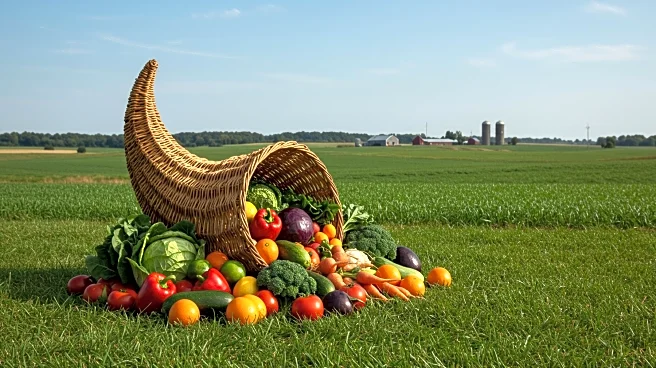What is the story about?
What's Happening?
Beth Ford, the president and CEO of Land O'Lakes, has raised concerns about the current state of the U.S. agricultural sector. In a recent op-ed, Ford highlighted several pressing issues, including low commodity prices, declining farm income, and an aging farmer demographic. She emphasized that these challenges are compounded by high interest rates, shifting trade lanes, and insufficient labor. Ford noted that farm bankruptcies have doubled compared to the previous year, and the median farm income is projected to be negative, with most farms relying on off-farm income to sustain operations. The op-ed also pointed out the impact of evolving trade policies, which have reduced market access for U.S. farmers.
Why It's Important?
The issues highlighted by Ford have significant implications for the U.S. agricultural sector and the broader economy. The decline in farm income and increase in bankruptcies could lead to reduced agricultural output, affecting food supply and prices. The challenges faced by farmers may also impact rural communities, which rely heavily on agriculture for economic stability. Additionally, the lack of a new Farm Bill and the uncertainty surrounding agricultural policies could exacerbate these issues, leading to further economic strain on farmers. The situation underscores the need for policy interventions to stabilize the agricultural economy and support farmers.
What's Next?
The agricultural sector may see increased advocacy for policy changes to address these challenges. Stakeholders, including farmers, industry groups, and policymakers, are likely to push for the passage of a new Farm Bill that provides a safety net for farmers. There may also be calls for measures to improve market access and address labor shortages. The outcome of these efforts will be crucial in determining the future stability of the U.S. agricultural sector.
















